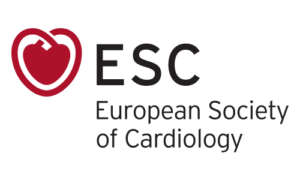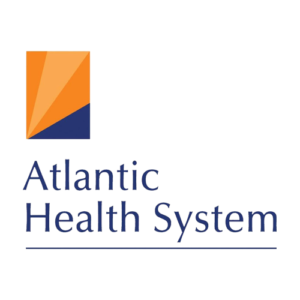Clinical Research
VectraCor has received the support of Key Opinion Leaders (KOL) in the cardiology and acute care fields, and more specifically of the CEB® and derived ECG technology. The Company sought out physicians and researchers to conduct clinical studies and use the VectraplexECG System in their facilities. Some of the participating institutions and the studies that were conducted are outlined below.
Published study comparing the CEB® to high sensitivity troponin blood test/cardiac serum markers. Presented at ACC 2014 in San Francisco, CA. Published in Critical Pathways in Cardiology – Volume 13, Number 1, March 2014
Conclusions: In conclusion, in patients in ED evaluated for acute myocardial injury, increasing values of HsTnI were associated with increasing values of the CEB®, suggesting that myocardial injury is associated with acute changes in the CEB® in the population of patients with high pretest probability of acute myocardial injury.

University of Basel Leading Research Facility Worldwide on Cardiac Serum Markers – Cardiac Electrical Biomarker, a Novel Marker Diagnosing Myocardial Injury in Patients With Symptoms Suggestive for NSTEMI. Presented at the AHA in November 2017 in Orlando, FL (Published in Circulation. 2017;136:A13562)
Conclusion: The CEB®, an ECG marker of myocardial injury, significantly improves the accuracy and sensitivity of the ECG for the diagnosis of NSTEMI.
University of Basel Leading Research Facility Worldwide on Cardiac Serum Markers/High Sensitivity Troponin (Dr. Mueller/Dr. Reichlin). Published and presented at The European Society of Cardiology Conference in Rome – September 2016. Abstract has been published, and the full manuscript is done and being submitted to a leading journal.
Conclusion: The CEB®, a novel ECG marker indicating myocardial injury, significantly improves the diagnostic accuracy of the ECG for the diagnosis of AMI.

Prospective study in the Cardiac Cath Lab – Study presented at the American College of Cardiology Conference (ACC) in Washington, DC in March 2017
Conclusions: The CEB® shows a positive response to balloon and stent inflation during PCI with a strong correlation. The CEB® appears to show a stronger response to balloon inflation in larger arteries, cases involving infarction, and in greater severity stenosis. The CEB® may be an efficient and timely means of detecting myocardial ischemia in patients who are being monitored in acute care settings.

Cardiac electrical biomarker retains “memory” of myocardial ischemia not severe enough to cause myocardial necrosis. S. Chattopadhyay, F. Adjei, A.Kardos
“Cardiac electrical biomarker” (CEB) is a numerical index measured by Vectraplex ECG (vECG) System with a software able to detect changes of the dipolar vectors in the cardiac electrical field to multipolar as an indicator of myocardial ischemic injury. CEB has been validated with ECG traces derived from patients with acute myocardial infarction.
Conclusion: CEB increases with short repeated transient coronary artery occlusion not severe enough to
cause myocardial necrosis and took 3 hours to return to the pre-procedural level suggesting an
“ischemic memory”.

Cardiac Electrical Biomarker Improves ECG Prediction of Left Ventricular Scar. Fabrizio Ricci, MD, PhD, Cesare Mantini, MD, PhD, Melissa De Maio, MD, Carla Pietrangelo, MD, Anna Laura Caterino, MD, Luca Procaccini, MD, Marzia Olivieri, MD, Antonella Benedetto, MD, Marco Zimarino, MD, PhD, Giulia Renda, MD, PhD, Antonio Raffaele Cotroneo, MD, Sabina Gallina, MD, FACC, FESC
Myocardial scar detected by cardiovascular myocardial resonance (CMR) with late gadolinium enhancement (LGE) imaging is associated with increased risk of major adverse cardiovascular events and all-cause mortality.
Conclusion: Non-invasive ECG quantitative assessment of multipolar activity of the heart improves accuracy of conventional 12-lead ECG criteria for prediction of left ventricular ischemic scar. Further research is needed to test whether CEB might serve as a screening tool for the detection of silent myocardial infarction in asymptomatic patients.
ATLANTIC HEALTH SYSTEM/SUMMIT MEDICAL GROUP
Published 7 studies/abstracts from Dr. Schreck and Dr. Fishberg – Dr. Schreck has published over 40 abstracts over the past 30 years. Presented abstracts at numerous conferences
(ACC, ACEP, SCCM, ISCE and others)


- Clinical Validation Summary
- Cardiac Electrical Biomarker Improves ECG Prediction of Left Ventricular Scar. Fabrizio Ricci
- Cardiac Electrical Biomarker, a Novel Marker Diagnosing Myocardial Injury in Patients With Symptoms Suggestive for NSTEMI
- Modified HEART Score Using the Derived 12-Lead ECG and a Cardiac Electrical Biomarker
- Bayesian analysis of CEB – Journal of Electrocardiography 2017
- Comparison of a new cardiac electrical biomarker and the spatial QRS-T wave angles in the detection of acute myocardial ischemic injury – European Heart Journal 2017 Presented at European Society of Cardiology in Rome 2017
- Diagnostic Performance of a New Real-Time Cardiac Electrical Biomarker – ACEP 2016
- Detection of acute myocardial ischemic injury by gender using a novel cardiac electrical biomarker, Am J Emerg Med (2015)
- Automated Analysis of the 12-lead ECG in the Emergency Department: Association Between High-sensitivity Cardiac Troponin l and the Cardiac Electrical Biomarker, Critical Pathways in Cardiology, Volume 13, Number 1, March 2014
- “Diagnostic Accuracy of a New Cardiac Electrical Biomarker for Detection of Electrocardiogram Changes Suggestive of Acute Myocardial Ischemic Injury”, Annals of Noninvasive Electrocardiology, 2013 Annals of Noninvasive Electrocardiology, 2013
- “DERIVATION OF THE 12-LEAD ELECTROCARDIOGRAM AND 3-LEAD VECTORCARDIOGRAM”, The American Journal of Emergency Medicine, Volume 31 (2013) 1183-1190.
- “REAL-TIME CARDIAC ELECTRICAL BIOMARKER FOR DETECTION OF AMI” – ACC Published April 2011
- “MATHEMATICAL MODELING AND UTILITY OF THE DERIVED 22-LEAD ELECTROCARDIOGRAM” – ACC Published April 2011
- “Eigenvalue of the ECG New Marker for AMI” – Chest 2005
- “Derivation of the 12-Lead Electrocardiogram using Abstract factor analysis and simplex optimization” – IJBEM Published 2002, Vol. 4, No.2
- “DETECTION OF AMI USING A REAL-TIME CARDIAC ELECTRICAL BIOMARKER” – SCCM Published December 2010
- Schreck DM, et al: Factor analysis of normal and abnormal ECGs. Ann Emerg. Med. (Abstract) 1990; 19:1226.
- Schreck DM, et al: The synthesis of normal and infarction electrocardiograms from principal vectors by factor analysis. Ann Emerg. Med. (Abstract) 1992; 21-462
- Schreck DM, et al: Factor analysis of the electrocardiogram and vectorcardiogram. Crit. Care Med (Abstract) 1994; January (Supp).
- Schreck DM, et al: Mathematical modeling of the electrocardiogram and vectorcardiogram. Ann Emerg. Med. (Abstract) 1994; March.
- Schreck DM, et al: Fractal dynamics of the electrocardiogram. Academic Emerg. Med. (Abstract) 1994; April
- Schreck DM, et al: Factor analysis of the standard electrocardiogram. Acad Emerg Med (Abstract) May 1996.
- Schreck DM, et al: Fractal dynamics of normal and infarction electrocardiograms: A computer predictive model. Ann Emerg Med (Abstract) 1997; 30:430-431.
- Schreck DM, et al: Prediction of the electrocardiogram using iterative key set factor analysis and target factor analysis. Ann Emerg Med (Abstract) 1998; 32:S46.
- Schreck DM, et al: Mathematical modeling of the standard electrocardiogram using polynomial abductive network. Ann Emerg Med (Abstract) 1998; 32:S46.
- Schreck DM, et al: Statistical methodology: VI. Mathematical modeling of the electrocardiogram using factor analysis. Acad Emerg Med 1998; 5(9):929-934.
- Schreck DM, et al: Prediction of the 19-lead electrocardiogram from 3 lead-vectors using factor analysis. Ann Emerg Med (Abstract) 1999; 34:S25.
- Schreck DM, et al: Factor analysis of the 19-lead electrocardiogram. Crit Care Med 1999; 27(Suppl.):A31.
- Schreck DM, et al: Prediction of the 12-lead electrocardiogram from 3 lead-vectors using factor analysis. Ann Emerg Med (Abstract) 2000; 35:S62.
- Schreck DM, et al: Electrocardiogram mathematical modeling using simplex optimization. Ann Emerg Med (Abstract) 2000; 36:S71
- Schreck DM, et al: The derivation and electrical basis of the 22-Lead electrocardiogram: a computer mathematical model. Ann Emerg Med (Abstract) Oct 2001.
- Schreck DM, et al: Derivation of the 12-lead electrocardiogram using abstract factor analysis and simplex optimization. Int J Bioelectromagnetism 2002; 4(2):337-338.
- Schreck DM, et al: On the derivation of a new cardiac marker: the electrocardiogram eigenvalues. Ann Emerg Med (Abstract) September 2002; 40(4):S70.
- Schreck DM, et al: The derivation of the 12_lead ECG from 3 standard leads. Prehospital Emergency Care 2003; 7:160-161.
- Schreck DM, et al: A new marker for myocardial infarction: a real time computer model of measured and derived ECG eigenvalues. Crit Care Med 2003; 30(12 suppl):A20.
- Schreck DM, et al: Mathematical modeling of the electroencephalogram. Acad Emerg Med 2003;10:439.
- Schreck DM, et al: Mathematical modeling of the electroencephalogram. Ann Emerg Med 2003;42:S3.
- Schreck DM, et al: A real-time cardiac marker for acute infarction: eigenvalues of the measured and derived ECG. Ann Emerg Med 2003;42:S30.
- Schreck DM, et al: The Derived N-Lead Electrocardiogram. Crit Care Med 2003; 31 (12 suppl):A62
- Schreck DM, et al: Clinical application of eigenvalue analysis and the derived electrocardiogram as a real-time marker for infarction. J Am Coll Cardiol 2004; 43(5 suppl): 424
- Schreck DM, et al: The eigenvalue as an electrical marker in the prediction of acute myocardial infarction in measured and derived electrocardiograms. Computers in Cardiology 2004, Chicago, Illinois. (Proceedings) Page 46.
- Schreck DM, et al: The derived n-lead electrocardiogram. Ann Emerg Med 2004; 44(4 supplement):S73-S74.
- Schreck DM, et al: The eigenvalue model as an electrical marker in the prediction of acute myocardial infarction in measured and derived electrocardiograms. Ann Emerg Med 2004;44(4 supplement):S124.

